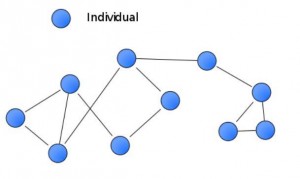
Summary: Envy and social comparisons on Facebook and other social network sites might leave a person feeling deflated or frustrated.
Key Take-Aways
- Passive engagement such as reading or aimlessly viewing photos may lead to unpleasant social network experiences.
- Active engagement such as purposeful actions like answering a question, making a comment, or sending a message may be associated with more positive emotions.
A research study conducted in Germany titled Envy on Facebook: a Hidden Threat to Users' Life Satisfaction? has recently generated some press. Social scientists from Humboldt University in Berlin and Darmstadt's Technical University surveyed 357 people (most university students). They found envy was a consistent experience user encountered on the social network mega-site. The point of their study was not to bash Facebook; they referenced the notion all social network sites may be facilitating upward social comparisons and envy because of the tendency to see the posts of others as an indication they have better lives.
For example, if you have an online friend who posts about going on vacation to places you have never been and can't afford, you may feel jealous. Or, if you are reading the posts of friends with better careers and presumably more money, this activity may also be envy-provoking. Engaging in this kind of social comparison generally leaves a person seeing his or her own life as inferior and may become less grateful overall. (Researchers in Spain found comparing salaries tends to make employees unhappy as well.)
People reported being jealous about how their online friends spent their leisure time, which was indicated by their travel photos. Social comparison is in play when we notice if others have more friends or more important friends, or other things such as a person receiving more likes or comments on their posts. Envy may also be present when we somehow believe our online friends are happier than we are based on their postings, but in reality, they may not be happier.
It should be pointed out that negative emotions for the research subjects were associated with being in a passive mode while on Facebook, meaning reading posts and viewing with no particular purpose and taking no action. Active engagement is associated with more positive emotions. This type of engagement has a purpose, such as sending an internal message, making an announcement of a personal nature, uploading a photo - anything that is action-oriented. Active engagement is also probably shorter in duration; it is not aimless reading for hours.
The German research study did find there are positive emotions associated with being on Facebook as well, perhaps when actively engaged.
So, if you are at work and bored, it may not be the best idea to go on Facebook and view your friends' posts without any purpose. Doing so may result in a deflated mood, which in turn will not help you get your work done.
As the researchers said, "Indeed, most recent evidence suggests that continuous engagement in passive following may lead to feelings of exhaustion, annoyance, irritability, and overload [7], [21]."
(Source: Humboldt University)
Image Credit: Public Domain, Wiki Commons